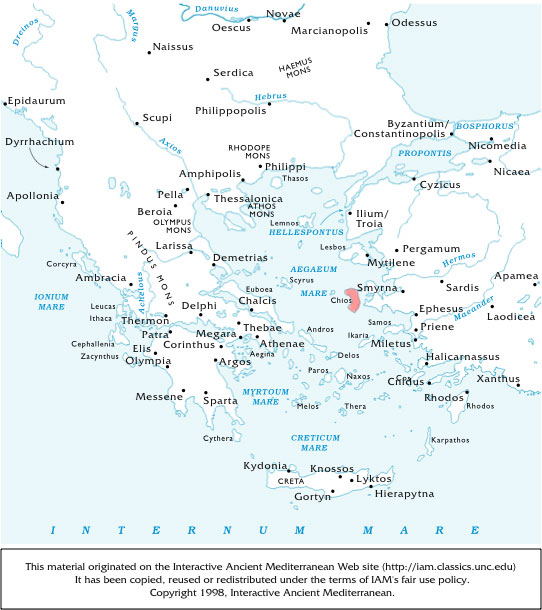
Chios
One of the largest and most famous islands of the Aegean, lay opposite to the peninsula of Clazomenae, on the coast of Ionia. It was colonized by the Ionians at the time of their great migration, and remained an independent and powerful maritime state till the defeat of the Ionian Greeks by the Persians, B.C. 494, after which the Chians were subjected to the Persians.
The battle of Mycalè, 479, freed Chios from the Persian yoke, and it became a member of the Athenian League, in which it was for a long time the closest and most favoured ally of Athens; but an unsuccessful attempt to revolt, in 412, led to its conquest and devastation.
Chios was celebrated for its wine and marble. Of all the States which aspired to the honour of being the birthplace of Homer, Chios was generally considered by the ancients to have the best claim; and it numbered among its natives the historian Theopompus, the poet Theocritus, and other eminent men.
Its chief city, Chios (Khio), stood on the eastern side of the island.
(Harpers Dictionary of Classical Antiquities, 1898.)
